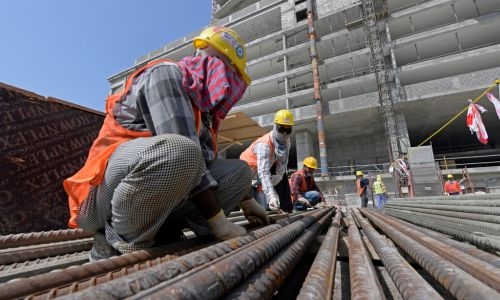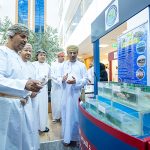The government of Bahrain has implemented a new ban on outdoor labor during peak heat hours in an effort to protect worker health and safety. This decision will come into effect next week and aims to prevent heat-related illnesses and workplace accidents. The ban specifically prohibits work in direct sunlight and high-temperature areas from 12pm to 4pm during the months of July and August, when temperatures in the Kingdom can reach extreme levels.
As Bahrain experiences soaring summer temperatures and high humidity levels, the government has taken this proactive step to address the risks faced by outdoor workers. By enforcing restrictions on outdoor labor during the hottest hours of the day, authorities hope to reduce the incidence of heat stress, sunstroke, and other heat-related health issues among employees. This move reflects a commitment to prioritizing the well-being of the workforce and ensuring a safe working environment for all individuals engaged in outdoor labor.
The decision to ban outdoor labor during peak heat hours is part of a broader effort to address the challenges posed by extreme weather conditions in Bahrain. As temperatures continue to rise during the summer months, the importance of protecting outdoor workers from heat-related health risks becomes increasingly critical. By implementing this ban, the government is taking proactive measures to prevent heat-related illnesses and ensure the safety of individuals working in challenging environments.
The ban on outdoor labor during peak heat hours underscores the government’s commitment to promoting occupational health and safety standards in Bahrain. By setting clear guidelines for when outdoor work is prohibited, authorities are sending a strong message about the importance of prioritizing worker well-being. This measure will help to create a safer working environment for individuals engaged in outdoor labor and reduce the likelihood of heat-related accidents and injuries occurring in the workplace.
In addition to protecting worker health and safety, the ban on outdoor labor during peak heat hours is also expected to have a positive impact on overall productivity and efficiency in the workforce. By ensuring that employees are not exposed to extreme heat during the hottest hours of the day, employers can help to maintain optimal performance levels and reduce the risk of work interruptions due to heat-related illnesses. This measure is designed to benefit both employees and employers by creating a more supportive and conducive working environment for all parties involved.
In conclusion, the government’s decision to ban outdoor labor during peak heat hours in Bahrain represents a significant step towards enhancing worker safety and well-being. By implementing this measure, authorities are taking proactive steps to address the challenges posed by extreme heat and humidity during the summer months. This initiative reflects a commitment to promoting occupational health and safety standards and creating a safer working environment for individuals engaged in outdoor labor. As the ban comes into effect next week, it is expected to have a positive impact on reducing heat-related health issues and workplace accidents among the workforce in Bahrain.











